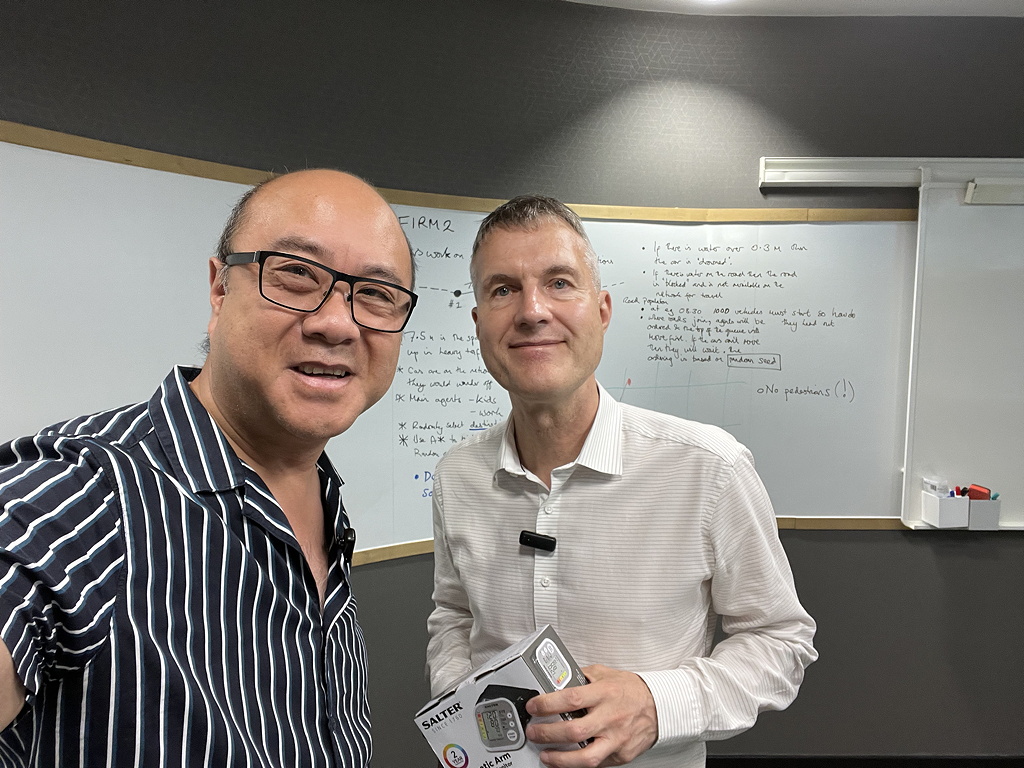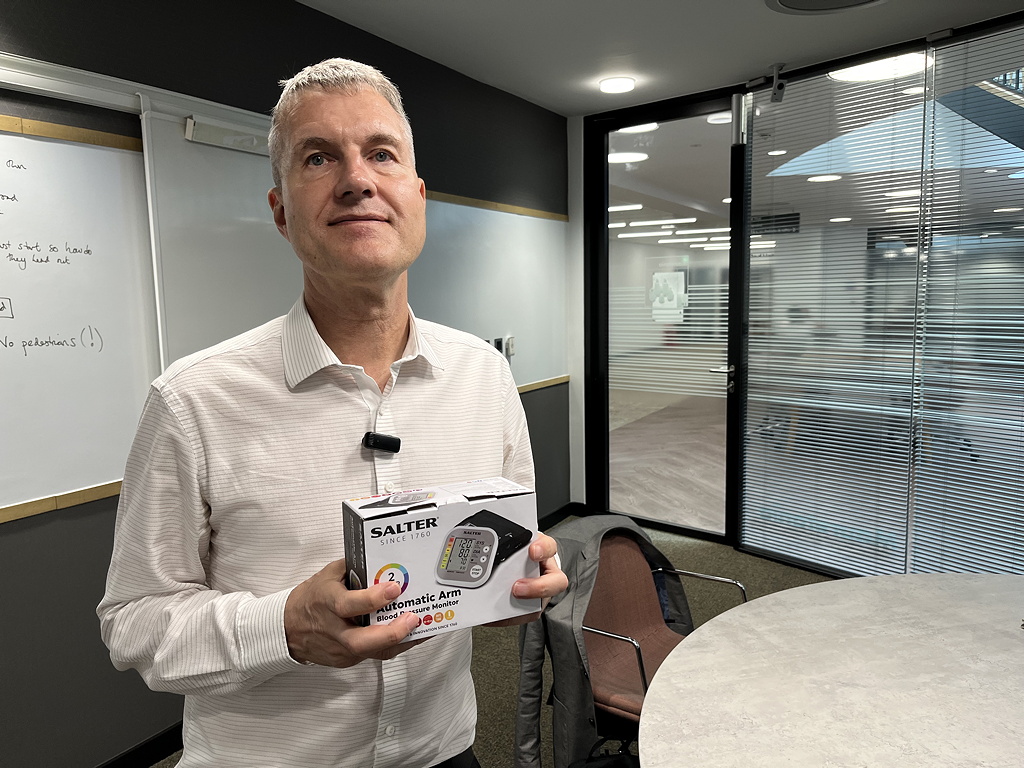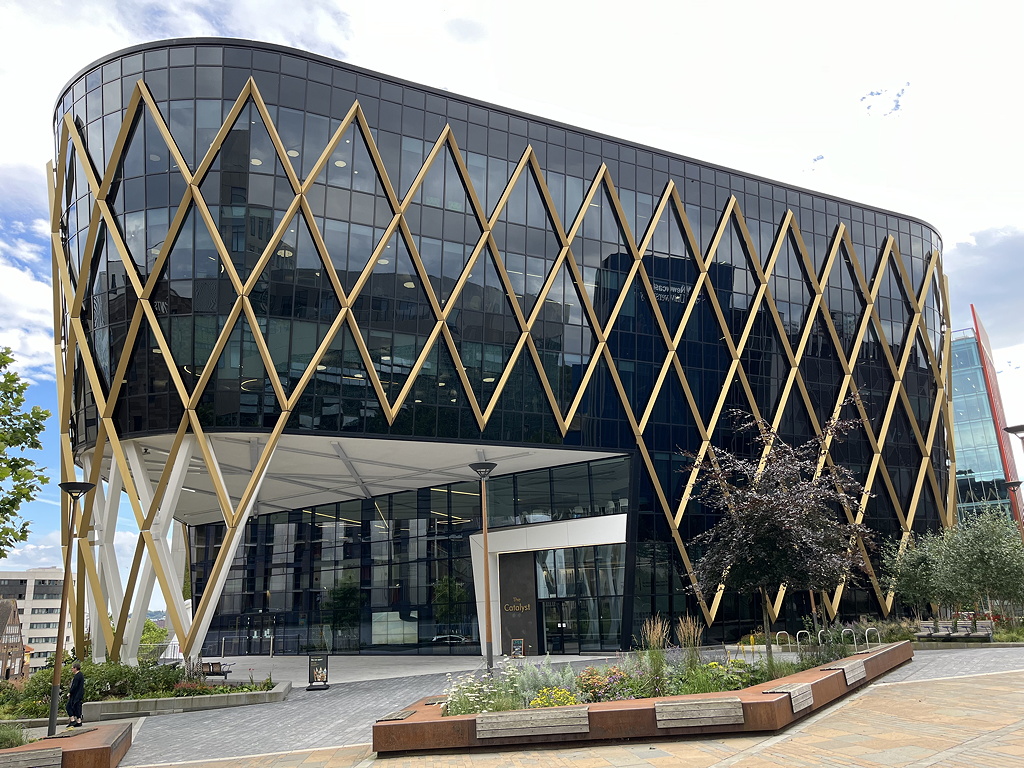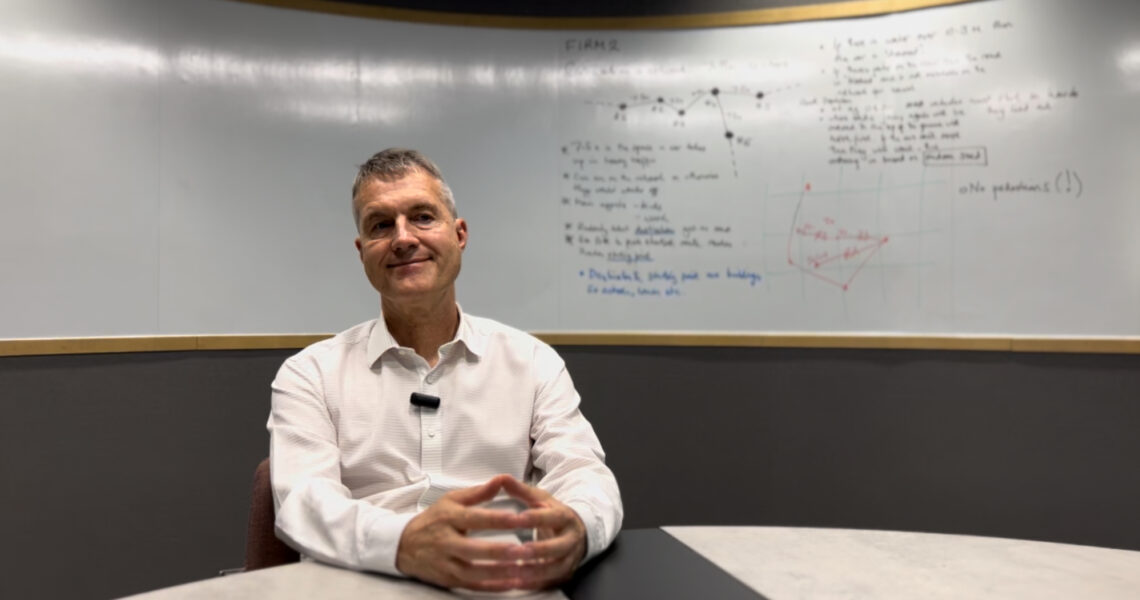Paul Watson from National Innovation Centre for Data
I have been to Innovation Centres where it’s a bunch of units for rent and you are left to your own devices. I have also been to Innovation Centres where there is support for small businesses and proactive community building.
Today, I went to an Innovation Centre that actively uses their expertise and resources, working directly with businesses to deliver results, innovation and upskilling as part of their projects. Any intellectual property created is left with the client. Furthermore, the work maybe part funded too as part of the Government’s goals for the centre to help UK business benefit from data innovation.
The centre was opened in 2019 with investment from Government and Newcastle University.
The National Innovation Centre for Data (NICD) was created in 2019 with £30 million of funding from the government and Newcastle University. Based in the state-of-the-art Helix science district in Newcastle, our mission is to transfer data skills to the UK workforce. Our team of PhD and Masters-level data scientists work to ensure that organisations across the country are equipped to reap the benefits of the global data-driven revolution.
The redevelopment of the old brewery area looks amazing and still more buildings going up. NICD are based in The Catalyst, a brand new building, with workspaces, meeting rooms, a café and all the facilities to enable the collaborative ecosystem to drive innovation. https://www.thecatalystnewcastle.co.uk
Executive Summary
My high-level points that I took from the interview.
- The NICD have a team that work on projects, not just to run a building
- Part of the project delivery is to transfer data skills into the client
- The government support to increase data skills means many projects can be part funded
- Any intellectual property derived from the project stays with the client
- All the events and masterclasses are free to attend
- There is a paid-for annual conference
- You don’t need to have science parks outside of the town or city centre
- Centre owned by Newcastle University
- Centre managed by Oxford Innovation Space

What is innovation in data?
The National Innovation Centre for Data has seen more than 100 projects have come through across many different sectors.
What people see as innovation is the fact they are drowning in data, from internal processes, external sources, and they want to know how they can use that to transform their organisation. That might come from insights to make better decisions, a goal to improve productivity, or launch new data-driven products and services. This all requires innovation through the use of new tools and techniques such as machine learning and advanced statistics.
Link for NICD Case Studies https://www.nicd.org.uk/case-studies
What kind of organisation is the NICD?
The National Innovation Centre for Data is not a commercial organisation, it is a national centre set up by the Government.
Industry approached Government and said they needed help with their data. Instead of acting as a consultancy, to take on a project, do the work and pass the outcomes back, the NICD work with the staff within the client organisation, to develop their data skills to advance their capabilities too.
The funding also goes towards The Catalyst, which is the innovation building, and Newcastle University subsides the projects so industry pay roughly half of the project costs. That was a stipulation from Government to make access to data science skills more accessible to the smaller businesses.
Who should be coming to the National Innovation Centre for Data and why?
An analysis of the 100 projects they have conducted has shown have of them are SMEs and the other half are large business and multinationals.
The sectors have been very broad too, so in essence, any organisation with a data project.
The National Innovation Centre for Data have a team of expert data scientists, with many having PhDs and 4 to 5 years’ experience of working with companies.
Events and masterclasses are run to raise awareness of what AI and data science can do to transform an organisation. This leads to companies realising they should contact NICD to help them on their challenges.
Collaborating with others
When it comes to companies working with NICD, that in itself is a collaboration as the client is bringing in their domain expertise and NICD are bringing in their data science skills. An innovation process is followed which begins with identifying what the business opportunity or challenge is, rather than starting it as a technical problem. This is based on the Osterwalder Business Canvas Model.
There is also the reach back into Newcastle University and all the expertise in any field.
Collaborating with researchers and academics
There can be a nervousness from businesses in working with academia as things such as timescales may have different expectations. Research projects can last 3 to 5 years and have an element of risk to it, otherwise it wouldn’t be a research project, which small businesses have an outlook in the range of 9 months to one year.
If there was another way to get a project, that could deliver value to the shorter timescale, which then opens up conversations on what could be done by taking a few risks which may deliver new products and services in the 3 to 5 years.
Intellectual property
NICD gives away the intellectual property to the client from the collaborative work.
Advice for a career in data sciences
If it’s early in their career, then a Masters Course or a degree in data science could be a first step.
If you are in industry already, it could be through a project with NICD that a skills transfer process happens, which can be more specific to that role or company.
What about a role at the National Innovation Centre for Data?
The National Innovation Centre for Data does recruit data scientists, those with experience post degree as they will be spending time with people in industry, and good communications skills to enable to the skills transfer too.
The gap between knowledge and business
NICD runs data innovation bootcamps to bridge the chasm between having the technical knowledge and to being able to apply the in industry, based around the Osterwalder Business Canvas Model to take a business problem, unpacking it, and working out a project to address that problem.
High level business challenges are invited, which are different to the ones that a typical student will be used to, who are presented with data, told to apply deep learning to create model to do this.
An example of a high-level challenge was when a business came in and asked, how do we reduce our carbon footprint. It’s the business skills and mentoring that will help those students understand how to approach that challenge.
For students seeking their first jobs, having that experience and skill can be a differentiator when it comes to interviews against other candidates that may have the same qualification and grades on paper.
Do you work with the National Innovation Centre for Ageing (NICA), who are in the same building?
Working on Digital Healthcare, the NICD, with the National Innovation Centre for Ageing, will collaborate where there are companies collecting data from sensors.
Paul has been involved in a large pan-European project called Mobilise-D, which incorporates collecting and analysing data from small sensors worn on a body, to give an assessment of someone’s mobility which is considered a vital sign of health.
https://www.michaeljfox.org/grant/mobility-matters-mobilise-d-extension-study
https://www.ncl.ac.uk/press/articles/archive/2019/04/50mdigitalmonitoringprojecttopreventdisease
The data has been used to predict the progression of conditions such as Parkinson’s Disease.
Thank you to Paul for his time and another blood pressure monitor donated.


